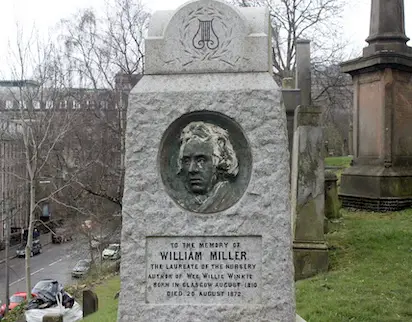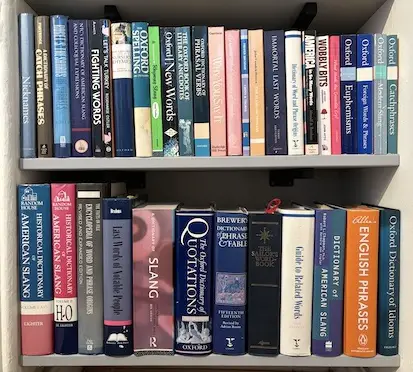This relates to the research method used to write the 2000+ phrases listed under the meanings and origins section.
How I research the meanings and origins of phrases…
Meanings
The meanings of phrases and idioms are usually well known, but I’ve always included them when writing about a phrase as the site is viewed by many people whose first language isn’t English. Occasionally, the meaning is worth spelling out, especially for phrases like the exception that proves the rule and beg the question, which are widely misunderstood.
Origins
It’s in the seeking out of the origins of phrases that proper research starts. What ‘proper’ means here is research that backs up its conclusions with documentary evidence. So, where do you find that?
Well, it’s not by cutting and pasting, or by scanning your memory for what “I’ve always believed that…” or “I was told that…”. What you need are sources of printed evidence that date from the time that the phrase first began to be used.
Step One is to determine that ‘first usage’ date – and that’s often not easy.
Sources of early printed references

What can help in the search for a first use of a phrase are original printed sources. These might be old books, newspapers, ships’ logs, military records etc. At a pinch you could even include gravestones – the origin of the nursery rhyme Wee Willie Winkie is documented pretty much definitively on a gravestone in Glasgow.
What is a boon to anyone wanting to research phrases, and what would have been unimaginable to the poor souls who laboured to create early dictionaries, is that digitised versions of many of these books and newspapers are now available online – for instance:
- Project Gutenberg – a wide ranging collection of out of copyright books.
- Early English Books Online – a large collection of medieval books. Many English phrases are derived from Norman French, so you often have to go way back.
- The Internet Archive – 2 million public domain and modern books.
- The British Newspaper Archive – 4 million pages from national and regional British papers, from the 17th century onward. Can be especially useful as so much of the English language was coined in Britain.
- The Newspaper Archive – 500 million newspaper pages from around the world, from the 17th century onward.
- The Trove Archive – 2 million books and newspaper pages of Australian origin.
Top of the tree when it come to word sources is the Oxford English Dictionary. This is the most comprehensive and authoritative historical dictionary of the English language and provides a time-line for virtually every word in English. Back in the day, you needed to take a wheelbarrow to the local bookshop to bring home the 15 heavyweight volumes. These days it is online.
Some of those archives are free; some charge. You could also look in a trusted reference source, that is, a source that itself has gone back to original documents. These might be reputable websites or printed reference books. For a rough rule of thumb on their reliability, measure their thickness.

This picture is a sample of the books I have used to research phrases.
Doing the research…
So, back to Step One – finding the earliest known usage.
You could look online to find what others have unearthed, then look at your reference sources to search for an earlier date.
Once you have the earliest known date you can make a judgement as to whether the phrase was coined at that point or just reused from an earlier source.
Some phrases, like A pig in a poke or Go out on a limb, originated as street slang and we aren’t ever likely to find the actual source. Others, like My kingdom for a horse ;or Going postal, have specific known origins.
Even if we can’t be sure what a phrase’s derivation is, it can be useful to know what it isn’t. For example, one of the many guesses as to the origin of The whole nine yards is that it refers to the length of a WWII fighter plane’s machine gun belts. Finding out that the phrase originated before WWI, let alone WWII, shoots that theory down.
It’s worth stressing that there’s no point in guessing a phrase’s origin. Every phrase was said or written first by somebody – we either know who that was or we don’t. Any reliable source will stick to the facts.